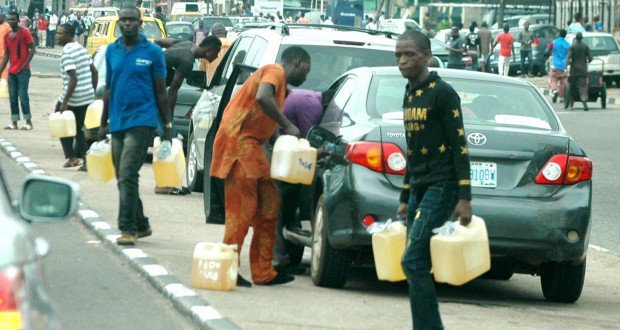Nigerians may be set for another wave of economic hardship as the pump price of Premium Motor Spirit (PMS), popularly called petrol, is now edging dangerously close to N900 per litre, following a new surge in depot prices and a looming global oil production adjustment.
Investigations by Platform Times over the weekend revealed that some retail outlets across Lagos and Ogun States have already adjusted their meters, with prices ranging between N865 and N910 per litre.
For instance, Matrix filling station at Kara, along the Lagos-Ibadan Expressway, displayed N910 per litre on Saturday, while Rainoil in Ibafo sold at N900 per litre on Sunday.
Depot prices have also witnessed a sharp increase, climbing from an average of N820 on Thursday to N870 by Sunday. Major depot operators like Aiteo, Aipec, A.A. Rano, and Emadeb pegged their prices at N865, while others like NIPCO, Matrix, and Sahara sold at N870. Dangote offered one of the lowest prices at N858 per litre, while some suppliers went as high as N900.
This sudden uptick in local petrol prices is coming amid fresh plans by the Organisation of Petroleum Exporting Countries and its allies (OPEC+) to ramp up crude oil production by 547,000 barrels per day starting in September.
The move, aimed at regaining market share and stabilising supplies, has stirred fresh market anxieties, especially as Brent crude continues to hover around $70 per barrel.
Reacting to the development, the National Vice President of the Independent Petroleum Marketers Association of Nigeria (IPMAN), Hammed Fashola, linked the hike in prices to exchange rate volatility and fluctuations in global crude oil markets.
“Let’s wait till Monday to see how the market adjusts,” Fashola told Platform Times, urging stakeholders to monitor developments closely.
The OPEC+ decision to increase output follows pressure from several quarters, including the United States, to stabilise global oil supply amidst geopolitical concerns involving Russia and Ukraine.
According to energy analysts, the rise in global crude prices, coupled with forex instability in Nigeria, is expected to keep local fuel prices on an upward trajectory in the coming days.
Meanwhile, there are growing concerns among Nigerian consumers and small businesses who fear the rising pump price will worsen inflation, deepen transportation woes, and increase the cost of goods and services.
With fuel subsidies officially removed and no price cap in place, the Nigerian market remains fully deregulated, leaving pricing solely at the mercy of international market dynamics and domestic logistical challenges.
Do you want to share a story with us? Do you want to advertise with us? Do you need publicity for a product, service, or event? Contact us on WhatsApp +2348183319097 Email: platformtimes@gmail.com
We are committed to impactful investigative journalism for human interest and social justice. Your donation will help us tell more stories. Kindly donate any amount HERE




